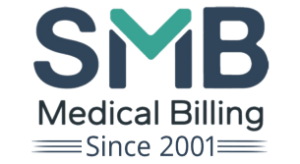Medical billing is a vital aspect of the healthcare industry that involves submitting and following up on insurance claims for services rendered to patients. While it’s an essential part of any medical practice, managing medical billing in-house can be time-consuming and complex. As a result, many healthcare providers are considering outsourcing their medical billing tasks to specialized companies. However, one question that arises is whether outsourcing medical billing is worth the cost. In this article, we’ll explore the pros and cons of outsourcing medical billing and help you make an informed decision.
Benefits of Outsourcing Medical Billing Management
Increased Efficiency and Focus on Patient Care
Outsourcing medical billing allows healthcare providers to focus on providing quality patient care instead of worrying about billing-related tasks. Medical billing companies have dedicated staff trained in handling billing, coding, and claims processing, allowing healthcare providers to allocate their time and resources to patient care. This increased efficiency and focus can lead to better patient satisfaction, which can ultimately lead to higher revenue.
Expertise and Compliance
Medical billing companies have a team of experts who keep up-to-date with the latest billing rules and regulations. This expertise is particularly important since billing errors and non-compliance can result in claim denials, financial losses, and even legal issues. By outsourcing medical billing, healthcare providers can ensure that their billing processes are always compliant with the latest regulations, leading to less or no errors and more reimbursements.
Reduced Overhead Costs
Managing medical billing in-house can be costly. It requires staff, technology, and training. Medical billing services can help reduce overhead costs associated with in-house billing management. Medical billing companies take care of billing-related tasks, including software updates and staff training, reducing the need for healthcare providers to invest in technology and staff training.
Incorporates HIPAA Compliance and Conducts Audits
A well-established organization prioritizes HIPAA compliance by integrating it into all of their operations. They also conduct both internal and external audits to reinforce their policies and procedures. This ensures that they remain in line with the regulatory requirements and maintain the highest standards of billing compliance.
Final Verdict
Medical billing outsourcing is no longer viewed as just a cost-cutting solution but is now recognized as a valuable tool for achieving broader business benefits. Clients are increasingly turning to outsourcing as a means to drive business growth, improve operational efficiency, and enhance patient care. As a result, outsourcing has become a driving force behind the industry’s trend towards maximizing business benefits beyond just cost savings.
It can have several benefits, including increased efficiency, expertise, and cost savings. However, it’s essential to weigh the costs and benefits to determine if outsourcing medical billing is worth the investment. Healthcare providers should consider factors such as the size of their practice, the complexity of their billing processes, and the costs associated with in-house billing management before making a decision. By carefully considering these factors, healthcare providers can make an informed decision about outsourcing their medical billing tasks.







